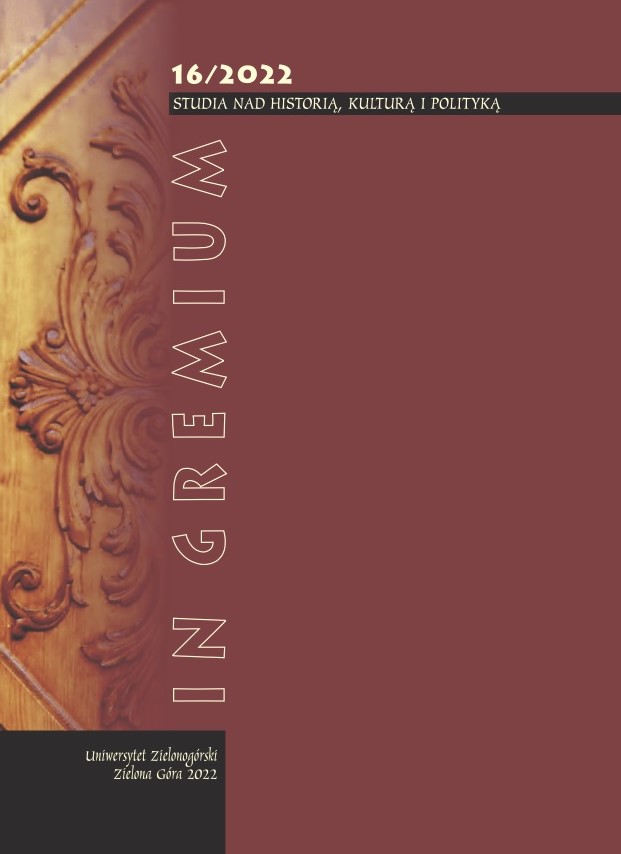Abstract
The article attempts to present Bernard Mandeville's lessons on the anatomy of human nature in practice, i.e. the practical application of knowledge about human passions by clever clergymen-politicians. Based mainly on Free Thoughts on Religion, the Church, and National Happiness, it has been proven that religion in the views of the author of this work is part of a system that is to keep society together by basing to the fear of an invisible power. At the same time, religion becomes an instrument used for constant abuse, struggle for power and material goods by clergy who skillfully manipulate human weaknesses. Religion ceases to play the role of a link between God and the faithful, and its role is reduced to conducting dirty politics. Mandeville's approach to this topic reminds us of the need for a thorough and objective analysis of our behavior, thanks to which a person will not only be able to understand himself, positively affect the condition of his own physical and mental health, but also protect himself from unnecessary conflicts. The problem of not knowing oneself is central to Bernard Mandeville's thought.
References
2. Encyklopedia Britanica, dostęp online: https://www.britannica.com/ dnia 17-03-2021.
3. Frauenglas E., Mandeville, Warszawa-Kraków-Lublin-Poznań-Wilno-Zakopane 1933.
4. Jack M. R., Religion and Ethics in Mandeville, [w:] Mandeville Studies: New Explorations in the Art and Thought of Dr. Bernard Mandeville (1670–1733), ed. Primer I., Haga 1975, s. 34-42.
5. James E. D., Faith, Sincerity and Morality: Mandeville and Bayle, [w:] Mandeville Studies: New Explorations in the Art and Thought of Dr. Bernard Mandeville (1670–1733), ed. Primer I., Haga 1975, s. 43-65.
6. Locke J., List o tolerancji, Warszawa 1963.
7. Mandeville B., An Enquiry Into The Origin Of Honour And The Usefulness Of Christianity In War, Londyn 2015.
8. Mandeville B., A Treatise of the Hypochondriack and Hysterick Diseases (1730), red. Kleiman-Lafon S., Cham 2017.
9. Mandeville B., Free Thoughts on Religion, the Church, and National Happiness, red. Primer, I., New Brunswick, New Jersey 2001.
10. Mandeville B., Fable of the bees, t. I, Londyn 1988.
11. Mandeville B., Fable of the bees, t. II, Londyn 1988.
12. Minos G., Historia ateizmu, Warszawa 2019.
13. Monro H., The ambivalence of Bernard Mandeville, Oxford 1975.
14. Ossowska M., Myśl moralna Oświecenia angielskiego, Warszawa 1966.
15. Simonazzi M., Atheism, Religion and Society in Mandeville’s Thought, [w:] Bernard de Mandeville's Tropology of Paradoxes: Morals, Politics, Economics, and Therapy, ed. Pires E. B., Braga J., Nowy Jork 2015, s. 221-242.

